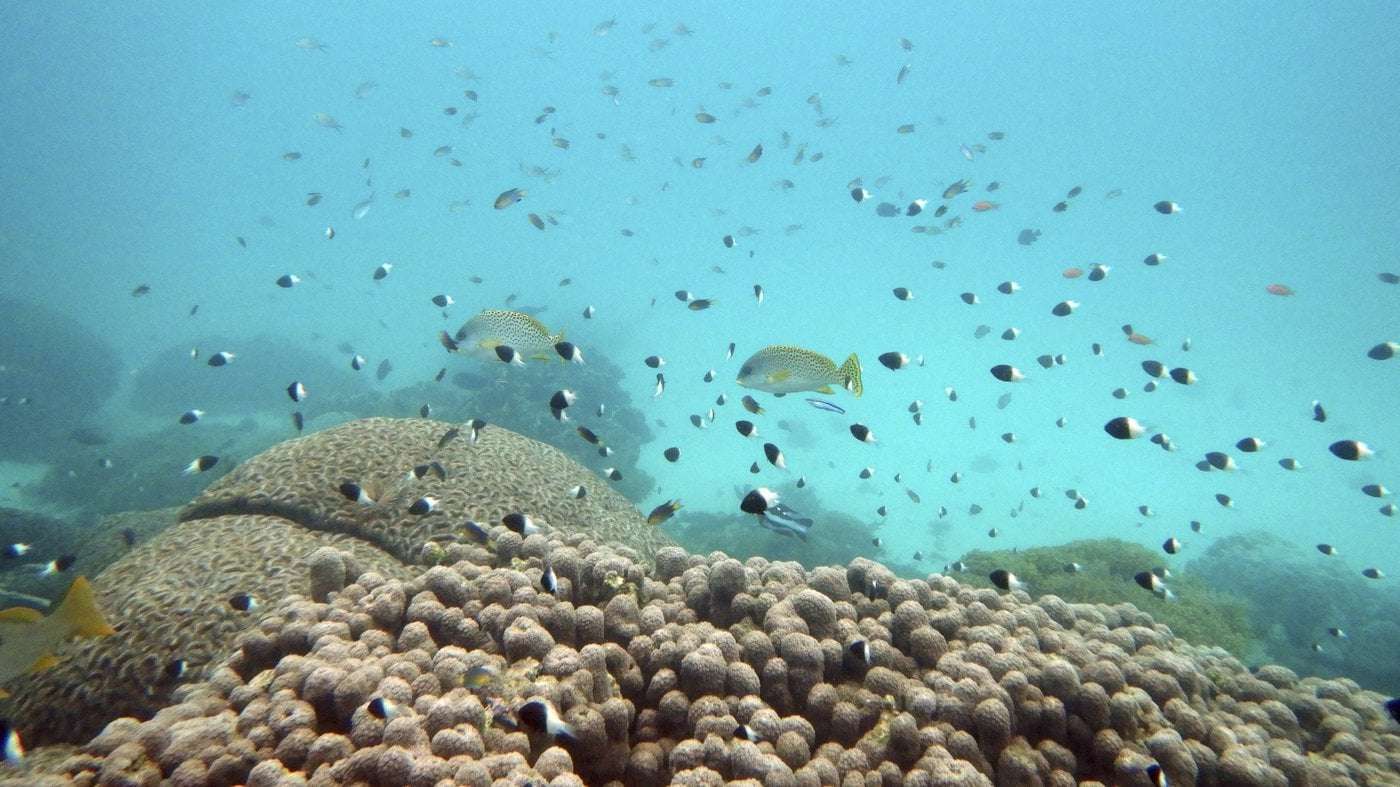A treaty to protect the world's oceans has been agreed after a decade of talks
Enlarge this image toggle caption Brian Inganga/AP Brian Inganga/AP
WASHINGTON — For the first time, United Nations members have agreed on a unified treaty to protect biodiversity in the high seas — nearly half the planet's surface — concluding two weeks of talks in New York.
The U.N. Convention on the Law of the Sea came into force in 1994, before marine biodiversity was a well-established concept.
An updated framework to protect marine life in the regions outside national boundary waters, known as the high seas, had been in discussions for more than 20 years, but previous efforts to reach an agreement had repeatedly stalled. The unified agreement treaty was reached late Saturday.
"We only really have two major global commons — the atmosphere and the oceans," said Georgetown marine biologist Rebecca Helm. While the oceans may draw less attention, "protecting this half of earth's surface is absolutely critical to the health of our planet."
Now that long-awaited treaty text has been finalized, Nichola Clark, an oceans expert at the Pew Charitable Trusts who observed the talks in New York, said, "This is a once in a generation opportunity to protect the oceans — a major win for biodiversity."
The treaty will create a new body to manage conservation of ocean life and establish marine protected areas in the high seas. And Clark said that's critical to achieve the U.N. Biodiversity Conference's recent pledge to protect 30% of the planet's waters, as well as its land, for conservation.
The treaty also establishes ground rules for conducting environmental impact assessments for commercial activities in the oceans.
"It means all activities planned for the high seas need to be looked at, though not all will go through a full assessment," said Jessica Battle, an oceans governance expert at the Worldwide Fund for Nature.
Many marine species — including dolphins, whales, sea turtles and many fish — make long annual migrations, crossing national borders and the high seas. Efforts to protect them — and human communities that rely on fishing or tourism related to marine life — have previously been hampered by a confusing patchwork of laws.
"This treaty will help to knit together the different regional treaties to be able to address threats and concerns across species' ranges," said Battle.
That protection also helps coastal biodiversity and economies, said Gladys Martínez de Lemos, executive director of the nonprofit Interamerican Association for Environmental Defense focusing on environmental issues across Latin America.
"Governments have taken an important step that strengthens the legal protection of two-thirds of the ocean and with it marine biodiversity and the livelihoods of coastal communities," she said.
The question now is how well the ambitious treaty will be implemented.
The high seas have long suffered exploitation due to commercial fishing and mining, as well as pollution from chemicals and plastics. The new agreement is about "acknowledging that the ocean is not a limitless resource, and it requires global cooperation to use the ocean sustainably," said Malin Pinsky, a biologist at Rutgers University.

Cultural-Command3046 on March 5th, 2023 at 19:30 UTC »
Good news! This is vital in ensuring that marine life is protected and preserved for future generations. We must all do our part to ensure that we abide by these rules and regulations.
entropylove on March 5th, 2023 at 15:12 UTC »
Here comes the tsk tsking, sternly worded resolutions and lack of ability to enforce it.
autotldr on March 5th, 2023 at 13:33 UTC »
This is the best tl;dr I could make, original reduced by 81%. (I'm a bot)
Extended Summary | FAQ | Feedback | Top keywords: ocean#1 Sea#2 treaty#3 protect#4 marine#5